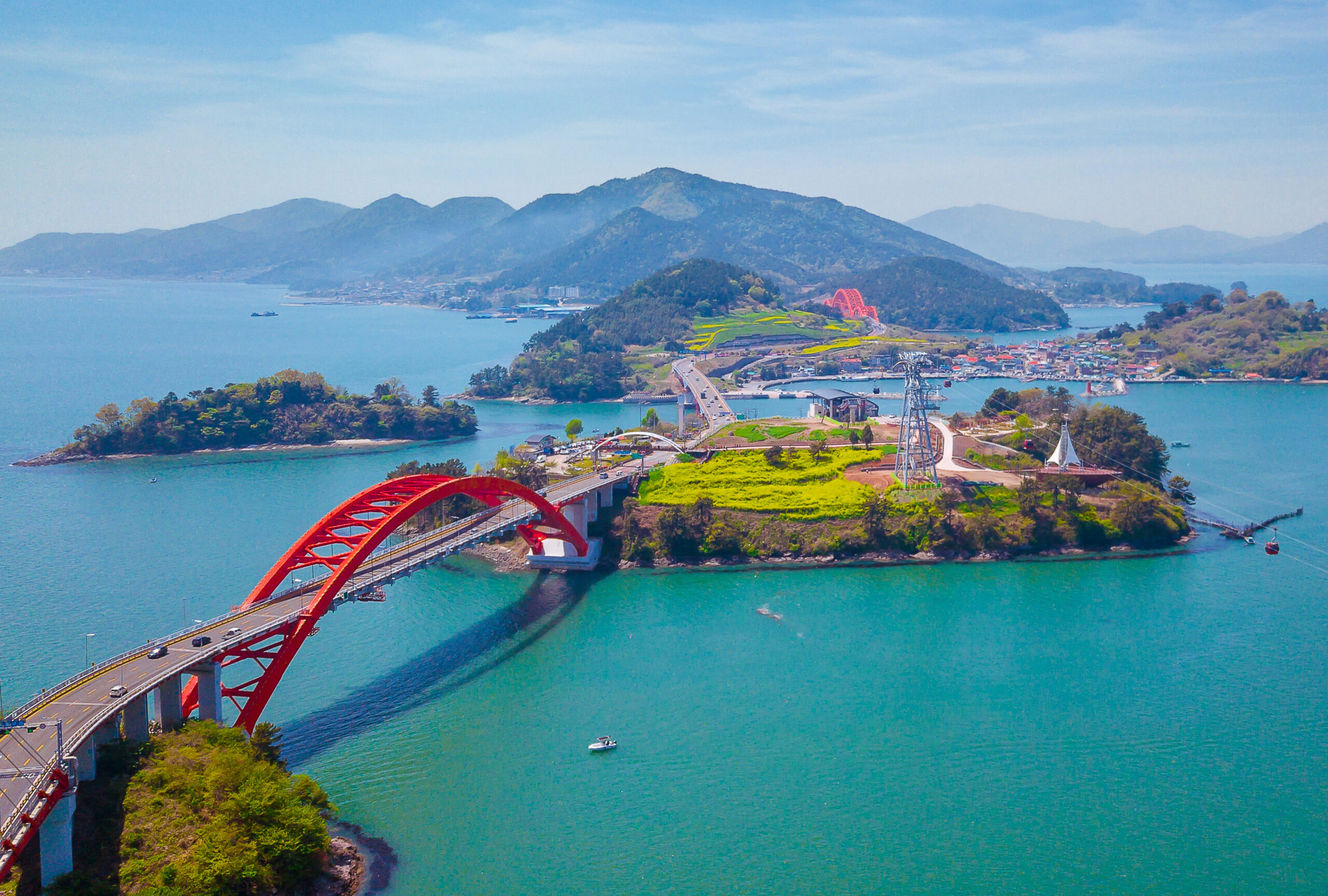Rising sea levels have spurred investment and interest in technology that can prevent or mitigate flooding. But some say it’s time to tackle the issue from a different angle: constructing floating cities that rise and fall with the water.
The idea is to build mobile parts that create a closed-loop, sustainable system and society.
Oceanix, the first floating community project with United Nations support, envisions extending existing cities using novel technologies. The South Korean city of Busan has given the non-profit Oceanix its blessing to build a prototype projecting from its shores, which is slated to be completed by 2026. This prototype would extend the tip of Busan into the sea using a series of reconfigurable and mobile parts, giving Busan the ability to tow entire neighborhoods.
“Once you get the neighborhood, it’s a matter of replicating that to create the city,” co-founder Itai Madamombe, a former U.N. senior advisor says. “You could expand indefinitely.”
Oceanix builds on past ideas regarding urban expansions into waters, but approaches it from a new angle. The idea is to build mobile parts that create a closed-loop, sustainable system and society — complete with energy creation, waste management systems and housing.
Yet floating city projects like Oceanix have a controversial, libertarian-leaning cousin: seasteading. While floating city projects like Oceanix rely on the support of the host country, the decades-old concept of the seastead aims to create self-governing, independent statesdeep in international waters — where no nation’s laws apply.
E Mare Libertas
The Seasteading Institute, founded in 2008, is the brainchild of Patri Friedman — grandson of Nobel Prize-winner Milton Friedman — and PayPal co-founder Peter Thiel, who jumped ship soon after funding its creation. The Institute is a non profit libertarian think tank focused on creating future-ready floating cities around the world. After multiple failed attempts, in 2017, it found a partner in the for-profit Blue Frontiers, and a location for its seastead: French Polynesia, a flat-low lying island threatened by rising waters.
The seasteading group’s relation to French Polynesia was limited to it simply being the nearest country — the $66 million project was to be funded entirely by the Institute. The project was also expected to contribute monetarily to the French Polynesian economy, and create jobs and renewable energy for the country, as well as a unique economic zone, dubbed the “SeaZone.”
The project fell through as the kindred beliefs once shared began to diverge — French Polynesia’s concerns laid in climate change mitigation. However, the Institute valued, and continues to prioritize creating a libertarian, government-free floating society for the wealthy that is reflective of their motto — which ironically encapsulates the differing interests — “E Mare Libertas,” or from the sea, freedom.
Manifest Destiny
Of the jurisdictions recognized for their tax avoidance, the lion’s share are located in the small islands of the Pacific. The wealthy have long exploited the lawlessness of international waters to skirt taxation responsibilities, using seasteads, yachts or even attempting the creation of residential ships to efficiently remain non-taxable.
“Seasteads are a reminder… of the ability of the wealthiest to insulate themselves from global crises.”
In French Polynesia, the Institute championed the support of the native people, yet, many saw the development as harmful, claiming that it is no more than tech colonialism. Those wealthy enough to make constructed worlds can create as many realities, virtual or location-based, as they please. Yet, those most affected by the activities of the ultra-wealthy and their emissions don’t have endless places to which to run. The majority of climate refugees don’t have the privilege of a constructed world.
“Seasteads are a reminder… of the ability of the wealthiest to insulate themselves from global crises,” writes Surabhi Ranganathan, Deputy Director of the Lauterpacht Centre for International Law. “They are an extension of the logic of panic rooms, gated communities, and nuclear bunkers — supposedly universal technologies but actually available only to a privileged few…”
Seasteading efforts in the Pacific create the illusion of a boundless, open and uninvestigated frontier — but, “[they] don’t always make sense when you follow them through to their logic,” says political geography professor Philip Steinberg, since “the very idea of international waters is itself a construction of the state system,” and establishing a seastead in international waters is intrinsically working with the system set up by the law of the sea and the nations that abide by it.
The future is floating
Yet, seasteads are notably different from projects such as Oceanix. “Seasteading has been important in the last decade in keeping the idea alive. It’s just not what we’re doing,” says Madamombe.
The United Nations backing of Oceanix and other projects legitimizes what it is trying to accomplish: extending existing land for a variety of purposes using sustainable development strategies. The versatile strategy theoretically allows Oceanix to create anything from neighborhoods to helicopter pads in the world’s oceans.
In regards to climate refugees, “[Oceanix hopes to utilize] floating infrastructure to meet whatever needs a city has, so if it is an issue of climate refugees, that would be wonderful — if it is fundable,” Madamombe says. “We want this to be affordable… especially for the communities that need this, island nations that need this, and coastal cities that are vulnerable.”

